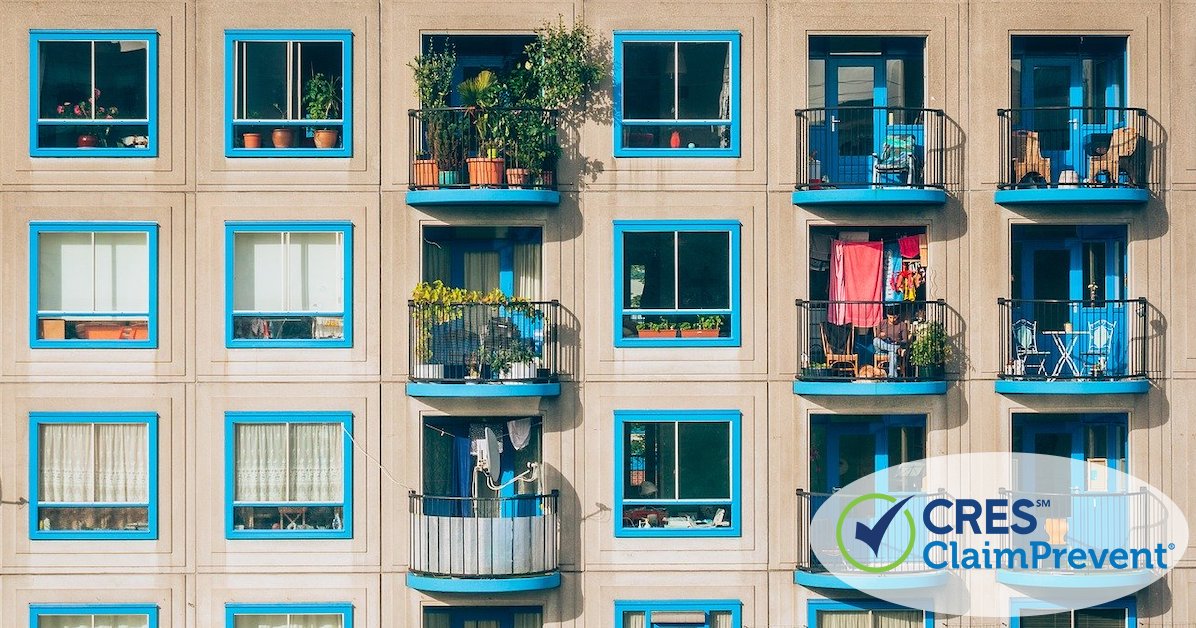Given the widespread nature of COVID-19, property managers shouldn’t be surprised to hear that one or more tenants are symptomatic or have tested positive. The question, of course, is what should a property manager do (and not do) upon learning of a COVID-19 positive tenant?
First, it’s important to know that tenants are not required to share their diagnosis with a landlord or property manager. A tenant may choose to tell the property manager, but they don’t have to. If you hear from other tenants that somebody is sick or has tested positive, you shouldn’t ask for confirmation. But you should still act based on the information you have, even if it’s unverified.
Here are four steps property managers should take upon learning of an alleged COVID-19 case in their property.
- Notify all tenants in writing
Tell tenants that there is an alleged COVID-19 diagnosis in the building or facility.
- Maintain privacy
Do not identify the person alleged to be COVID-19 positive. Know that you may be pressed by other tenants for more information, but you should not disclose the identity of that person.
- Provide safety information
When notifying tenants of the alleged illness of a tenant, also provide information about safeguards and guidelines to protect against the spread of COVID-19. You can include state or local guidance you’re following, such as limiting gathering in public spaces, cleaning guidelines, or other recommendations. You can also include information about preventing the disease.
You can get up-to-date guidelines from the CDC on how to avoid getting sick and share them with your tenants. For example, current standards (as of May 22, 2020) recommend:
- Careful handwashing with soap and water for at least 20 seconds
- Using hand sanitizer in situations where you cannot wash hands immediately
- Avoiding touching your face
- Maintaining physical distance of at least 6 feet
- Avoid gathering in groups
- Wear a mask or cloth covering when going out in public
- Reiterate the specific actions you’re taking
- Keeping building repairs to an absolute minimum to avoid having additional workers in the building (be sure you advise tenants of this). And be sure you only use vendors who will adhere to the required health and safety guidelines.
- Leaving any recently vacated units unoccupied for up to 7 days.
- Routinely cleaning frequently-touched surfaces and objects, including: keypads, railings, bathrooms, security desk areas, elevator buttons, door handles, mailboxes and mailroom surfaces, and communal spaces (if open)
- Installing hand sanitizer stations in high-traffic areas of the building such as entryways and the landing on each floor outside elevators.
Advice from the CRES Legal Team
If you have a legal question related to COVID-19 and a property you manage or represent, wouldn’t it be a relief to know you have access to free legal advice? At CRES, we want to help clients prevent claims. CRES property management E&O or real estate E&O members can call the CRES ClaimPrevent® Hotline 7 days a week and receive a response from an experienced attorney within 4 hours or the next business day. Every recommendation is confirmed in writing.
More COVID-19 Information You Can Use
COVID-19 continues to have an impact on the real estate industry, and we want to keep you up to date. In our COVID-19 resources section, you’ll find:
- Answers from our legal team about specific issues, like what to do if a tenant is allegedly COVID-19 positive
- Updates on government programs that could help you or your clients
- Advice for keeping your business vibrant
- State-specific notices you need to keep operating safely and legally.
Access all of our COVID-19 resources here: https://www.cresinsurance.com/covid-19-resources-for-real-estate-professionals/
What’s your biggest concern related to property and COVID-19?
